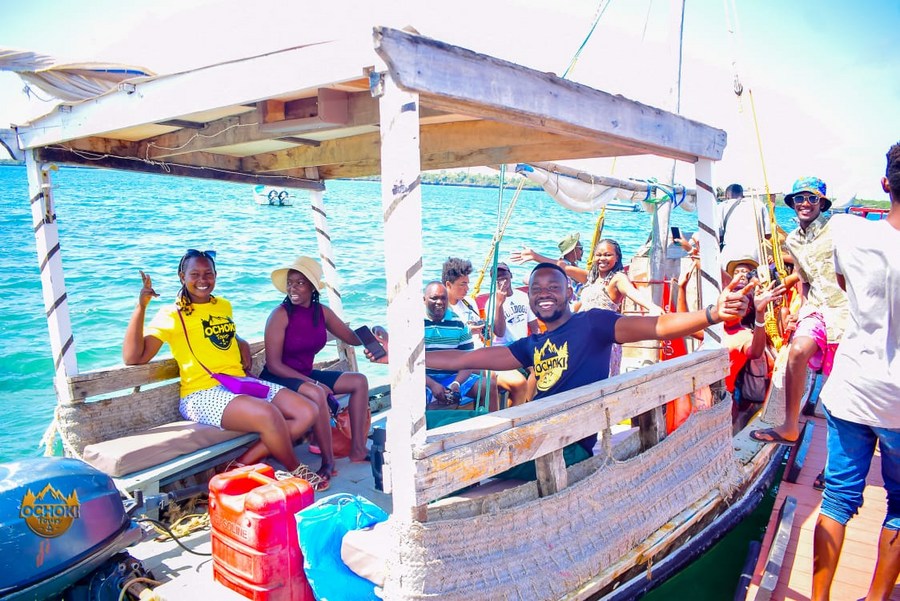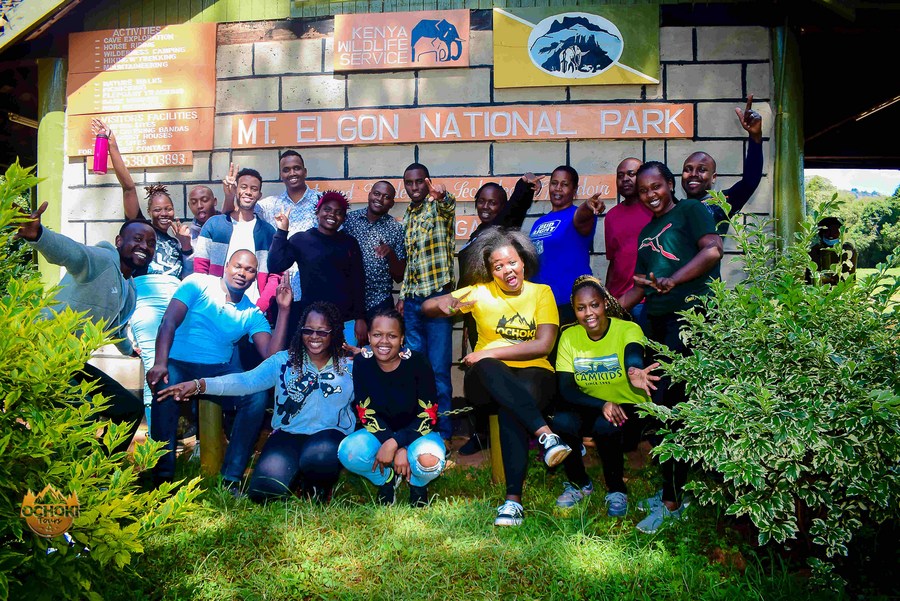
Kenyan tourists enjoy a boat ride in the Indian Ocean on Oct. 10, 2021. (Xinhua/Chrispinus Omar)
As domestic tourism in Kenya becomes more visible due to several factors including the COVID-19 pandemic, industry players have come up with attractive packages for the local tourists.
NAIROBI, Oct. 21 (Xinhua) -- Scaling imposing mountains, trudging through forests, and swimming in naturally occurring water features have become endearing activities for Vincent Muasi to partake.
Muasi's fascination with adventure only became apparent recently when he intentionally set aside a budget for leisure traveling, which provides him with the opportunity to sample what his motherland has to offer.
"I have always desired to get out more, but then I had subscribed to the notion that traveling is expensive," said Muasi, a banker based in the Kenyan capital of Nairobi.
"However, things have now changed because with a little less than 5,000 shillings (about 44.96 US dollars), I can afford the rates of a tour company offering trips within and outside the city," he added.
Muasi's sentiments on the seemingly high cost of domestic tourism are not isolated with fellow Kenyans sharing in his view.
As it happens, a recent countrywide study conducted last year to obtain information on the experience of domestic tourists before and during COVID-19 pandemic found that the high cost of traveling was a major deterrent to growth of local tourism.
The domestic market segment has remained a key player in the tourism sector for a while.

Local tourists are seen at the Mount Elgon National Park in Trans-Nzoia County, Kenya, Sept. 22, 2021. (Xinhua/Chrispinus Omar)
As the sector's significance becomes more visible due to several factors including the pandemic, industry players are coming up to curate attractive packages for the domestic tourist.
"I started my tours company which is based in Eldoret because the majority of tour companies domiciled in Kenya's Rift valley region only offered air ticketing. There were no companies doing tours, yet we have scenic sites residents did not know about," said Kevin Ochoki, CEO of Ochoki Tours.
"I like telling people that they should start exploring from where they are. For instance, if you are in the North Rift town of Eldoret, make an effort to exhaustively explore the town before you can start thinking about going to other countries," he added.
Ochoki said that his company has been able to provide experiences that cut across the entire market segmentation. Their most recent addition is city and bike tours which have received overwhelming approval from customers.
"Bike rides are refreshing and provide one with the opportunity of exercising the body," said Kimberly Chebet who has had the biking experience.
Chebet said that good customer service is a major determinant of the choice of a travel partner. It also helps if the company can provide additional services such as photography.
Kenyans want something new and within their financial reach, therefore the industry should be able to respond to this new need to remain viable, Ochoki said.
Safina Kwekwe, Tourism Principal Secretary said that sector players should start offering innovative domestic tour packages to entice Kenyans to travel and explore their country in a bid to stay afloat during the pandemic period.
"The country's tourism industry managed to remain afloat by harnessing the power of domestic travel," Kwekwe said during an event to mark World Tourism day on Sept. 27.
Since the pandemic hit the country, the government in conjunction with stakeholders intensified efforts to lure Kenyans out of their houses by vigorously marketing new experiences such as farm tours as well as running campaigns to encourage the touring of national parks and game reserves.
"The event sector has also proven to be quite attractive with Kenyans. For example, the safari rally was a major boost to hotels and tour companies. Maybe the government should facilitate such activities more," said Ochoki. ■




